Just what are the fickle demands of tourists that relegate Bangladesh to the bottom of the tourist league in South Asia? People tend to respond to negative news but the country’s media profile has sunk into such a quiet backwater, that even the bad news, so demanded of media outlets, has been left on the international news margins, unlike India, Myanmar and Thailand, with the inherent risk to tourist numbers. In fact it’s never had enough of a profile to have ruined by the bad news that does creep out about its dysfunctional political system. Annual tourist arrival figures in the two hundred thousands pale into insignificance with the millions for its neighbours, particularly when some of those are family connections with the diaspora than more typical tourists – I met many British Bangladeshi tourists visiting relations while I was there. To put it into perspective we had that number in just one day in my home town of Brighton for DJ Fatboy Slim’s free gig on the beach 2002.
As much as many in the backpacking world would like to think otherwise, it is a scene largely driven by the same herd mentality of mass tourism, as the example of Bangladesh amply demonstrates: despite its proximity to popular destinations, rock bottom prices and visa on arrival (at Dhaka airport) for ease of entry it languishes well off most people’s radar.
So, why should you go? Forget about the scenery, history and wildlife, normal travel blogs can deal with that. You need to go because of the people. I am going to go out on a limb and risk traveler heresy by saying that it beats even the legendary friendliness of Iran (no surprise that both countries are Muslim where the religious culture of welcoming strangers is overlaid on a similar existing culture) but whilst it is a destination that gives so much, it is equally one which demands much of its visitors.
Other countries in the region, like Myanmar and Indonesia can also boast a welcome that goes beyond a general idea of friendliness but what sets Bangladesh apart is how often this translates into such a sincere level of hospitality. Time and time again, brief encounters led to invites into people’s homes to stay, to eat and of course drink tea. Others would insist on showing me around their neighbourhood or places of interest, simply motivated by Bangladeshi etiquette towards guests. From muddy, tin roofed shacks to mansions I was eagerly welcomed and where to offer anything in return is a slur on their generosity.
One anecdote amongst the many, goes to the heart of the culture of hospitality. A young man opposite myself and friend Jalal on the train to Chittagong invited us to a gig in a couple of days as he was the drummer in a band. On the night in question we were told to meet at a community centre where we duly hung around while a wedding celebration went on inside. Within a couple of minutes we were dragged inside and sat at a table of wedding guests and ordered to tuck into a glorious banquet. Happily stuffed we received a phone call to discover we were at entirely the wrong community centre and we had no connection whatsoever with the people who had just welcomed us so warmly. Arriving at the correct venue, the “gig” was actually a pre-wedding celebration and despite the only link being with the drummer in the band I became the guest of honour, with utmost care for my welfare being taken all night. Naturally dancing is obligatory at such events, a skill at which I am undaunted by my own, abundantly evident inability. Where at home I am just an uncoordinated, rhythmically challenged sweaty old man, it turns out that on the Bengali wedding scene I happen to be King of the Dance Floor. Consequently, me busting some moves was the cue for every male from five to fifty to go absolutely fucking mental. Despite being a conservative Muslim country and not a drop of alcohol to be had, the energy exerted on the dance floor put efforts back home to shame and later on the girls and boys were dancing together, albeit without the indecorous close contact we are used to after fourteen gin and tonics. At 3am I wussed out and dragged my sweaty but happy self home for a shower and a good lie down.
Dealing with public transport when the alphabet is indecipherable can be problematic in many countries but here someone would always help out, translate if necessary, take me in hand to the right bus stop or train platform and make sure someone would tell me when we got to my stop. A white face is also a magical key to open otherwise locked doors or a hasty ushering to the front of a queue for any official business. It seemed that at almost any institution it only required whoever I was with to say in Bengali, “look a foreigner, can we see the boss right away”, to give us instant access. I even got to interview the director of the country’s huge and only mental hospital which we stumbled upon. (For the politically correct observers, mental hospital is still the current term used in the country for such an institution and not my own usage). You can also use your foreigness to give legitimacy to a local you are with when dealing with an official and sometimes your presence can deter demands for bribes, although of course it does cause rickshaw and taxi prices to inflate.
An intense curiosity of those few strangers who crop up underpins this hospitality but is also the basis of the demanding nature of a visit. A stop for a chat on a city street is something you never have to go far to find, in fact you have to actively avoid them at times if you want to get anywhere. But, two minutes in you will notice the hovering presence of others, men and boys will gawp in slack-jawed incredulity at the novelty of a tourist. Very quickly a dozen or more onlookers can accumulate into a silent communal stare. Although undoubtedly free of malice some would surely find it strange and intimidating. I was happy to laugh it off but to ask the same of a single female traveller for example seems an unreasonable demand – not that women need to exercise any more caution than elsewhere as long as they are conservatively dressed.
Most visitors to South-East Asia will have got used to locals wanting to take photos of us but in Bangladesh it moves up to a whole new level. At times I became like a film star mobbed by paparazzi and adoring fans with crowds of young people insisting on a selfie, which usually meant several photos with each of their friends in turn. It does provide a source of entertainment though: instead of irritating people by photobombing, the presence of an idiotic, grinning foreigner in the picture will add kudos to the proud picture taker and will rapidly be uploaded to Facebook, along with the several million pictures of myself that are already there.
If you think that swanning around Thailand and lounging on Bali means you have “done” South Asia, then Bangladesh is going to come as an awful shock, if not just for the virtual impossibility of buying beer. On chaotic city streets the grim reality of urban poverty is impossible to ignore and begging is common. You are confronted by disabilities and disfigurements you had never imagined existed, however serious pestering is limited and others soon shoo away any annoying beggars for you, as if it is a stain on their culture of hospitality. In Chittagong I passed one of the many ragged homeless men asleep on the dusty pavement, as nearby crows pecked out the entrails from a dead puppy. Not a typical image I grant you but an indication of how far down the ladder some lives have slipped.
But walking these same streets you are constantly greeted by friendly faces and people anxious to know how you are and where you are from. My only liability in these exchanges was that I suffer from an aversion to the sport of cricket, which I find as exciting as a slow motion replay of sedimentary rock formation. Cricket somehow invokes the fervour that the combination of football and alcohol struggle to achieve in England, so you will always be inundated with questions about your opinion on some incomprehensible aspect of the game. Thankfully Bangladesh beat England while I was there which averted a national tragedy and days of mourning.
If you feel overwhelmed by the chaos and contrasts of the cities, village life may be a calmer option but instead you are overwhelmed by even greater curiosity and onlookers will appear from nowhere if you stand around for a few minutes. My week’s stay in a village was an incessant round of invitations for tea, meaning that any attempt to go for a walk was a series of polite refusals and tea and biscuit stops. When I went to offer my support to the village football team at a nearby match the entire population of children, having never seen a foreigner before, spent far more time being interested in me than the game. After more tea and a chat in the cafe I even received a round of applause when it was time to leave, such was my superstar status by then.
So, if you think you can handle the challenges of Bangladesh and I will be detailing more of those in a future post, forget any conventional itinerary. Don’t have a schedule, just go with the flow and take up the inevitable invites from those that speak enough English and you are assured of true Bangladeshi hospitality.




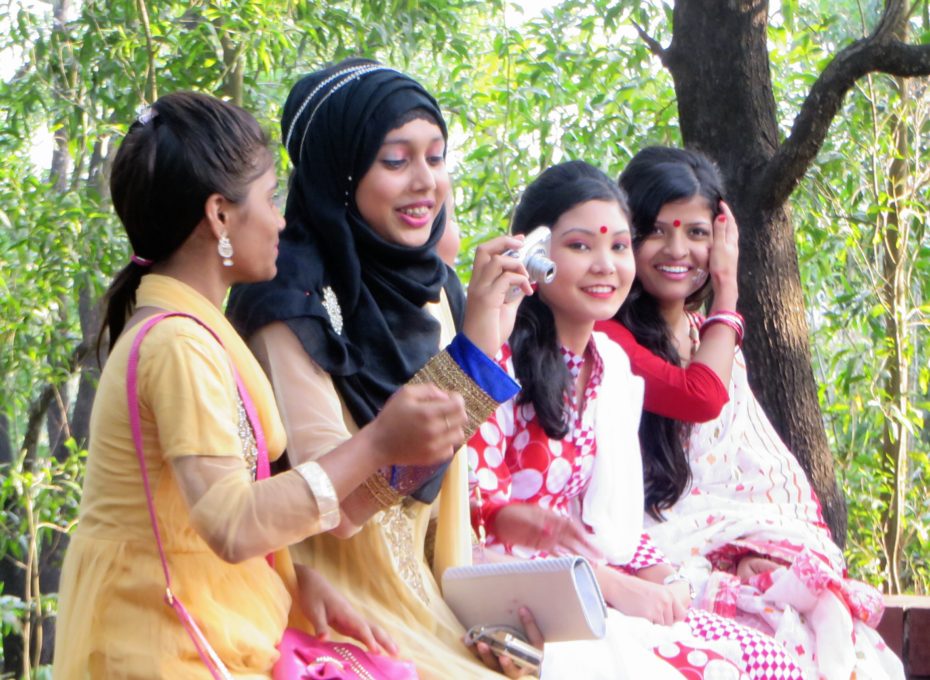
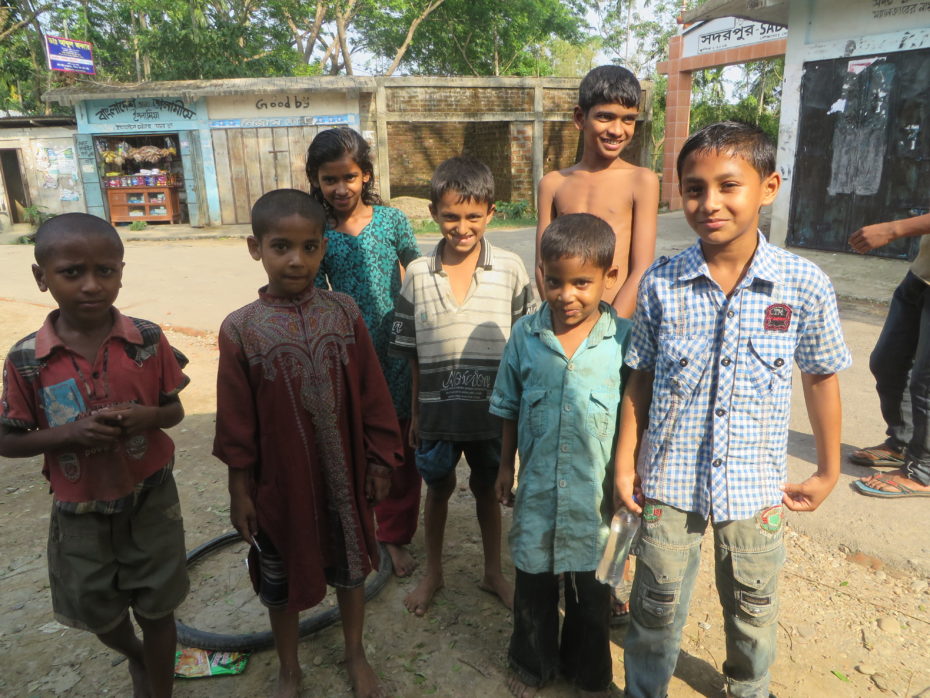
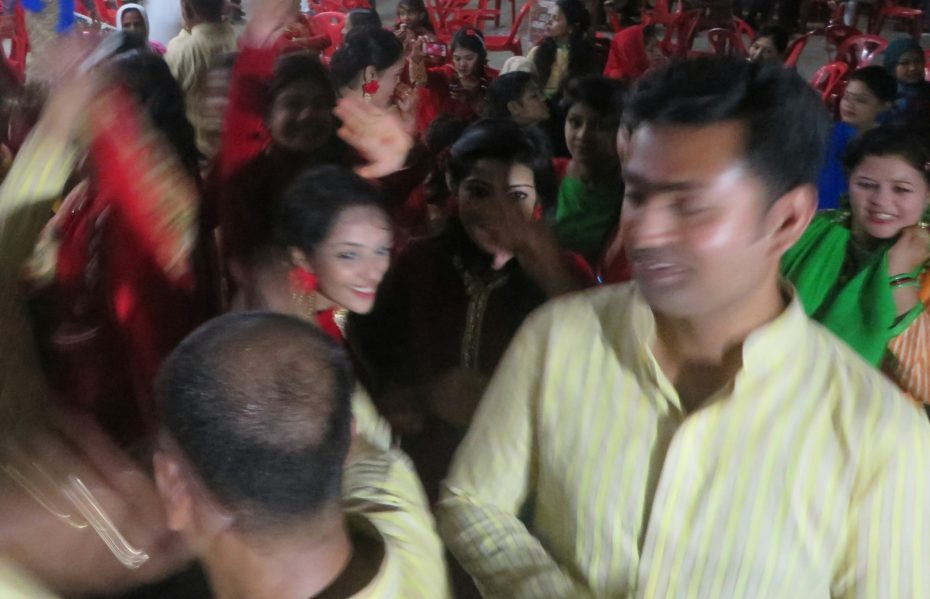
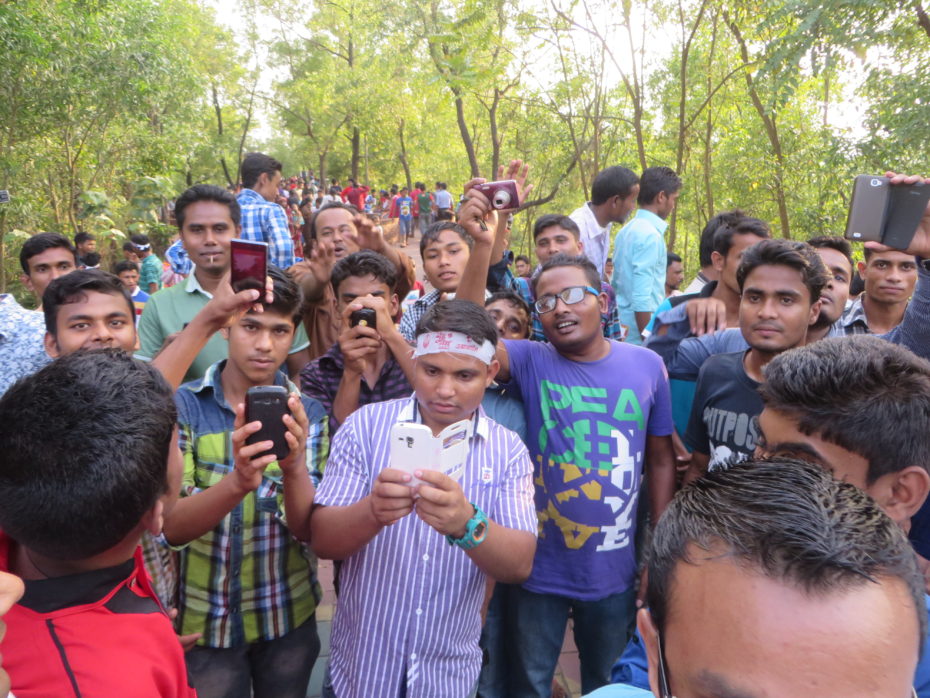
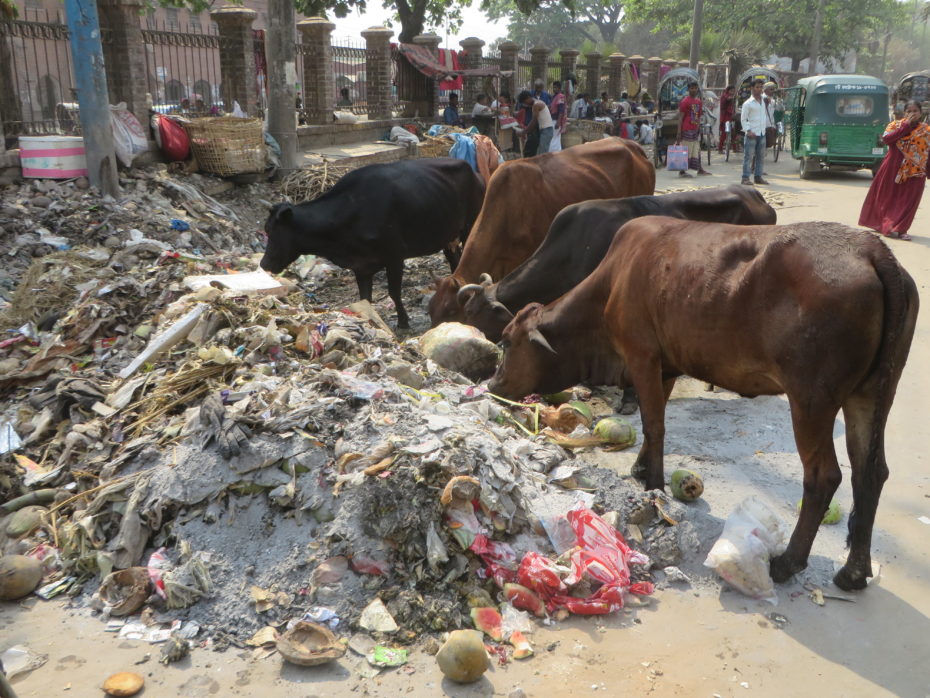
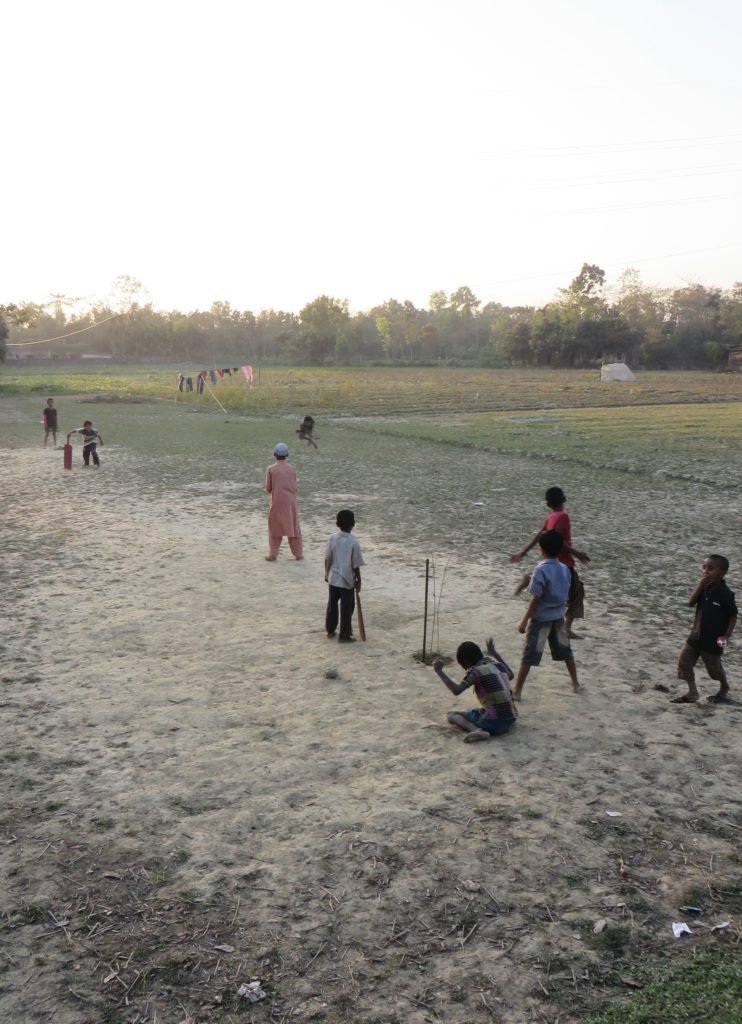

Thanks for this post – I’m an Irish/Australian moving to Dhaka at the end of August (I’m living in Viet Nam now) and it has been a little difficult to find many first hand accounts of migrants/tourists living in or visiting Bangladesh.
When I told friends and family that I was moving to Viet Nam, people starting coming out of the woodwork wanting to come visit. Completely different story with Bangladesh; most of my feedback is that it isn’t really a tourist destination…
Looking forward to more.
Many thanks. Well it certainly isnt a typical tourist destination but that is part of its appeal, while I loved it I realise that it would probably send some people home screaming. The important thing as I have pointed out is the people and I have no doubt you will be made to feel very welcome. Whilst you can always retreat to the comfort of the expat community whenever it gets too much I do urge you to out there and meet people. You will find plenty of students eager to speak english, also it will give you the chance of visiting their home towns, as you will certainly need a rest from Dhaka once in a while. Do learn some basic bengali as it will be greatly appreciated. Good luck with the move
The people are always the best thing about a country. I’m really looking forward to getting there and starting work.
I think learning the language of the country is a must. It opens up the country up to you and you up to it. Though I don’t imagine that Bangali will be any easier that Vietnamese to learn (I should have appreciated living in nice and easy French-speaking Geneva when I had the chance.)
Enjoy your continuing journeys!
Glad you share my thoughts on language, I am amazed by how lazy most travellers are, few can be bothered even learning some basics. From what I know about Vietnamese, which is all secondhand info admittedly, I think you will find Bengali easier as its not tonal. It has links to persian which is Indo European so I dont think you will find it too alien. I use Memrise for introduction language courses pretty much everywhere I go, if you havnt heard about it I would have a look at it. I really enjoyed the few posts I checked out on your blog, there seem to be so few bloggers who look at everyday culture – a refreshing change.
Well, I suppose that travellers are one thing, but if you are committing to living in a country you should actually live there – not just the expat bubble.
The Vietnamese language has been hugely difficult for me. My Vietnamese teacher would almost stick his fingers in my mouth to show me were to put my tongue to make the correct sound (as it is a tonal language, so if you mix up the tone the word changes; ie the word for Pomelo/Grapefruit becomes Penis…) So many mistakes, so many laughs.
This is my first time blogging and I started because I find Vietnamese culture/lifestyle/people completely fascinating and confusing and this blog is kind of a way to organise and figure out what is happening around me. It is also nice to write something different to my work (which can be pretty intense). It has been enjoyable so far, I think I’ll keep it up in Bangladesh.
I like your blog also, it is nice when people aren’t afraid to get sticky when they travel.
Dont think you will struggle to find things to write about in Bangladesh. There’s no shortage of working ex pats who put little effort into the language as well unfortunately so I admire your efforts with vietnamese. Keep up the good work with the blog